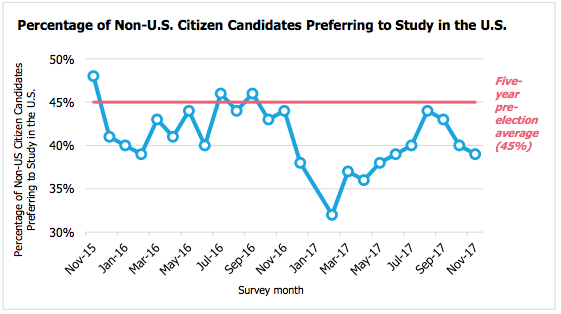The College Admissions Scandal—Could it Happen with MBA Programs?

Earlier this month, dozens of people—including celebrities Lori Laughlin, William H. Macy, Felicity Huffman, and Mossimo Giannulli—were caught greasing the wheels in a major college admissions scandal. Parents funneled a combined total of $25 million through a college admissions consultant, William “Rick” Singer, to athletic coaches and test proctors, all with the aim of gaining admission for their children to an elite undergrad program. Undergraduate programs entangled in the scandal included Stanford University, the University of Southern California, Wake Forest University, Georgetown University, Yale University and others.
Singer organized the bribery through his admissions consulting operation and a phony non-profit called Key Worldwide Foundation. In exchange for payment, the exam proctors would give students more time for the SATs and ACTs, provide answers and even allow substitute test takers. Meanwhile, athletic coaches would push candidates as recruits at their institution, whether or not they even had athletic experience.

Full House actress Lori Laughlin (left) was one of the major names caught in “Operation Varsity Blues,” paying an alleged $500,000 bribery to get her daughters Olivia Jade (center) and Isabella Rose (right) gain admission to USC / Photo via Gabriel Olsen/Getty Images
“Operation Varsity Blues,” as the FBI has nicknamed the investigation, exposed weaknesses in the college admissions process and demonstrated the shocking lengths that some parents will go to in securing a brand name education for their children.
We’ve seen the pressure and the hope of gaining admission to a top business school—so what’s to prevent fellow MBA applicants from gaming the system? Clear Admit believes there are several key differences in the MBA application space that make the “Operation Varsity Blues” type of scandal less likely.
- GMAC Runs a Tight Ship
The Graduate Management Admissions Council (GMAC) owns the GMAT exam, a test required by a majority of leading business schools for admission. The test is only offered via computer, making it harder to bribe a proctor for extra exam time. It also features strict identity security—including palm scanning—that thwarts any attempt of substitution of the test taker. Fraudulent attempts to increase GMAT scores have happened in the past, but GMAC has been swift in taking appropriate measures to avoid future threats to the integrity of the test. For instance, GMAC explicitly chose Pearson as the designated administer of the exam in 2006 due to the firm’s track record in testing security and anti-fraud measures. - Without Sports, There are No Coaches to Bribe
There are no formal athletic programs in graduate business programs. Unlike for the undergraduate scandal, the space for which one would pay simply does not exist. - Integrity Matters, and AIGAC Helps
The Association of International Graduate Admissions Consultants (AIGAC) released a statement upon news of the undergraduate admissions scandal: “AIGAC was established with the express purpose of setting high ethical standards in the graduate admissions consulting industry…AIGAC exists to provide support and professional development for those helping young people self-reflect through the admissions process and attain the right education in the right way.” Scott Shrum, former President and COO of Veritas Prep and current Secretary of AIGAC, added, “One of the most important things AIGAC does is keep the lines of communication open between the admissions consulting industry and administrators at schools. The more the admissions process seems murky to applicants, the more room that shady operators have to operate in the twilight and promise things that they really shouldn’t be promising. The more transparent the process is, the less room there is for that sort of behavior, and AIGAC has helped schools find allies in the industry who also want more transparency. A good admissions coach helps an applicant see the process more clearly and approach it with more confidence, and I credit AIGAC and the schools for helping to make that situation better over the past decade.” - Admissions Consultants Offer Advice On How to Put Your Best Foot Forward, Not Tips to Cheat the System
Shrum also notes, “The journalists who conflate legitimate coaching with this scandal are either deliberately doing it or are missing the point. That’s like saying that hiring a tennis coach and giving your kid steroids are both ways to help your child do better in a tournament, so they must not be very different. While this scandal has rightly shed more light on the college admissions game, Rick Singer and his cronies weren’t admissions counselors. They were crooks.” - Applicants are in the Driver’s Seat
Clear Admit co-founder, Graham Richmond, shared the following observation, “Helicopter parents are much more likely to be present in undergraduate admissions. By the time young people turn their attention to the MBA, they are usually the ones driving the process (and NOT their parents) and therefore, there is far less likelihood of fraud.” - Sooner or Later, the Truth Will Come Out
Shrum also offered this perspective, “I think it would be naive to think [such a scandal] can’t happen in MBA admissions. In the test prep space, the Scoretop scandal from 2008 showed the lengths that people will go to in an effort to boost their GMAT scores. On the admissions side, it’s inevitable that an applicant from a well-connected family, or whose boss is a huge donor to a school, has a leg up in the process. As long as universities value fundraising, I think this will always be the case. With all that said, however, it’s important to keep in mind that business school classes tend to be much smaller than undergraduate colleges, so it’s much tougher to ‘hide’ a mediocre applicant in a class. But it surely happens.”
While the system itself clearly has several safeguards against fraud, Shrum left us with a dose of reality:
“Unethical clients and unscrupulous admissions consultants find each other. It’s rare that an innocent family gets steered into bribery by an unethical consultant, or vice versa. They know what they’re up to, and what/whom to look for. I can’t count the number of times an applicant or parent has asked me, ‘So you’ll write the essays for us, right?’ and when I explain that’s not how it works, they move on. In some cases, I’m sure they find an admissions consultant who will do just that for them. Both parties know that what they’re doing is wrong, but they seem to have no problem doing it.”
The view at Clear Admit is that what happened in the “Operation Varsity Blues” case is clearly repugnant and unethical. It is also sad and a little puzzling.
Richmond offered the following thoughts: “On some level, this shouldn’t be shocking; it’s certainly not the first time we’ve seen people have ethical lapses when they can line their own pockets with money. But what sticks with me is the role that the parents played. These parents—who are presumably well educated and could have theoretically provided a great environment for their children to become smart young people and get into great schools on their own merit—felt the need to cheat. I wonder if they were perhaps too busy with their careers and not bothering to parent (resulting in kids who weren’t motivated enough) … or if they were somehow led to believe that this is how the college admissions game is played. Or perhaps it was just a case of them desperately wanting to be able to brag about the success of their children at cocktail parties? In all cases, it’s just profoundly sad.”
This article on the recent college admissions scandal has been edited and republished with permissions from its original source, Clear Admit.
UVA, Oxford, CEIBS Rise in All-New Financial Times 2019 Ranking

The latest Financial Times MBA ranking is officially out, with several international schools rising closer and closer to the top in 2019.
Are International MBAs Avoiding the United States?

Based on data from the most recently Graduate Management Admissions Council (GMAC) monthly survey, interest in U.S. business schools among international MBA candidates is still below pre-2016 election levels. In fact, it’s below the previous five-year average for each month since the election. And in each of the last three months—between September and November 2017—international application volume has decreased.

Image via GMAC report.
Just before Donald Trump’s election victory, approximately 46 percent of international MBA applicants surveyed by GMAC responded that they would prefer to study in the United States—above the 45-percent, five-year, pre-election average. But not once since November 2016 has that been the case. The percentage of international applicants indicating a preference for U.S. business schools plunged at the beginning of 2017, to below 40 percent in January and just over 30 percent in February. Summer 2017 saw a bit of a rebound—though never reaching 45 percent—but international interest has again declined this fall.
Of 1,992 non-U.S. candidates surveyed between September and November 2017, 23 percent shared that they had previously thought about applying to a U.S. program but have since changed their mind. As for the reasons behind applicant reluctance:
- 54 percent cited concerns about obtaining a job in the U.S. post-graduation
- 51 percent admitted concerns about gaining a student visa
- 47 percent cited safety and security concerns
- 42 percent talked about the political environment
- 39 percent admitted racism and discrimination fears
In addition, when GMAC surveyed nearly 700 U.S. MBA programs, about half admitted that they had received fewer international applications than in the previous year. Only 31 percent reported an increase in international applications. Another 20 percent reported no significant change.
For additional insights from GMAC as well as continued tracking of international candidate interest, visit the GMAC research website.
This article has been edited and republished with permissions from our sister site, Clear Admit.
New GMAC Report: Is the GMAT Getting Easier?

Is the GMAT getting easier? That’s the question that the Graduate Management Admission’s Council (GMAC), a non-profit organization of leading graduate management schools, set out to answer in their recent market intelligence report: The GMAT Exam Is Not Getting Easier: The Fallacy of Score Increases and the Impact of Score Preview. The 26-page white paper is the first in an annual series that will serve as a sort of quality assurance (QA) report for the GMAT.
5 Reasons You Should Get An Online MBA

It wasn’t too long ago that an Online MBA seemed like a skeptical investment. The concept of earning a legitimate MBA degree for a severely discounted price seemed impossible less than 10 years ago, especially with a gamut of “diploma mills” clogging the academic industry. Slowly, however, reputable schools like the Smith School of Business at the University of Maryland and the USC Marshall School of Business began implementing ultra-flexible online programs. The same degree that seemed like an outlier has quickly become a normal option for MBA students next to the more traditional full-time and part-time programs.
Continue reading…
Data Science Courses Increasingly Find Their Place in MBA Curriculums

Five years ago, MIT Sloan School of Management debuted a new course its professors believed to be the first of its kind. Called “The Analytics Edge,” the course gave students access to large quantities of real data that they could use to hone their analytic skills. “Our focus is on the application and the story, and how to use it in real life,” Allison O’Hair, one of the course’s co-instructors, said as part of a news article on the school’s website at the time. “To our knowledge, this is a new way of teaching … the only class here that teaches analytics through applications. We let students get their hands dirty with real data and applications of analytics.”
Continue reading…
